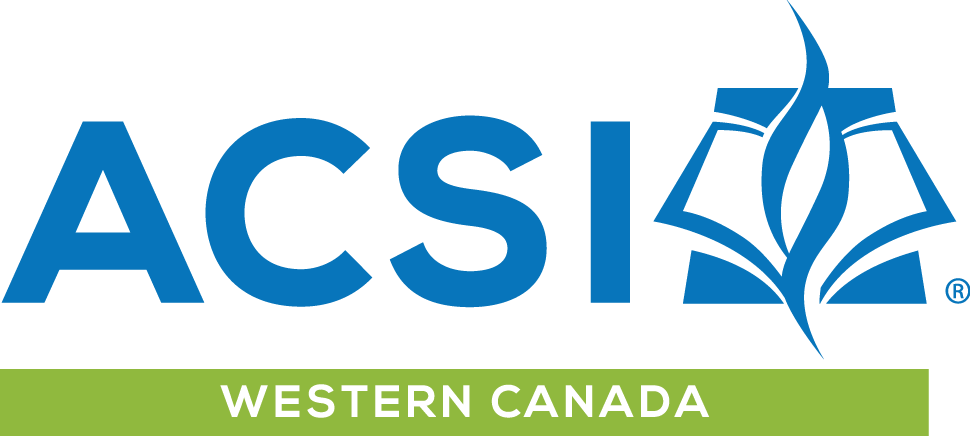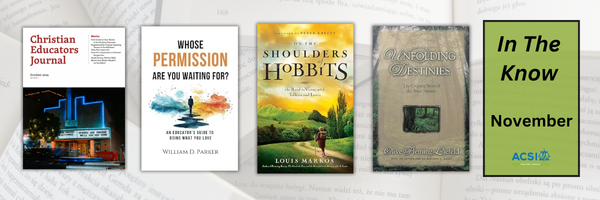Books that actually help: practical forms for inclusive schools, career moves for teachers, parenting wisdom via Tolkien & Lewis, and true-life inspiration from missionaries. Leaders, teachers, families—there’s something here for you!
-
Nuts & Bolts of Inclusive Education - Barbara J. Newman
What is this resource about? Rather than being a book that describes the philosophy behind inclusive education, this is a book that provides forms for everything from an intake process, to creating IEPs, to communicating with staff, students, and parents, writing report cards, and working with paraeducators. As such, it is more a source of forms rather than anything else. Keep in mind, these are written through a US lens, but the general information is still useful.
Why is it important? There are forms for just about every school process, but many of the forms for Inclusive Education (formerly Special Education) are created for the public school system. The benefit of this book is that the forms are created for Christian schools.
What should I do? Obtain a copy of this book and peruse the forms so that you can adapt them to your school as you need.
-
Whose Permission Are You Waiting for? - William D. Parker
What is this resource about? I’ve talked with many teachers who have been teaching for a few years and started to get a little bored with the regular routine and wondered, ‘What now?’ Parker answers that question and provides a number of steps to take, based on the interests of the teacher. As he argues in his title, there are times teachers seem to wait for permission from someone before thinking of making a change. Parker provides a variety of principles for teachers (and leaders) to follow if they are looking at a change in role within their career.
Why is it important? As teachers deal with the stress of the role of teaching, they often wonder what it would be like to change roles. When that happens, the follow-up question then moves to what role? It may not seem like there are more roles to choose from — one is either a teacher or an administrator. Parker shows that there are more options and what practical steps need to be taken in order to get into those roles.
What should I do? If you are thinking of a change in your role within the educational system, this is a book well-worth reading.
-
On the Shoulders of Hobbits: The Road to Virtue with Tolkien and Lewis - Louis Markos
What is this resource about? Markos revisits the classical virtues of courage, temperance, wisdom, and justice, and adds what he calls the theological virtues of friendship, faith, hope, and love as he walks the reader through the works of Tolkien and Lewis, drawing heavily on The Lord of the Rings and The Chronicles of Narnia.
Why is it important? As a reader, I have managed to pass on my love of reading to all of my children. I count that as one of my successes as a parent. However, in that process I have often had to think through what I want my children to be filling their minds with. Two of the authors I recommended were Tolkien and Lewis. We would listen to the Radio Theatre version of The Chronicles of Narnia as produced by Focus on the Family during a number of our road trips. I knew I liked both authors, but Markos provides justification for why both sets of books are helpful and healing to its readers. They are both written in a style of writing that helps instruct good morals (they are, after all, written based on biblical principles) as well as tell a good story. Markos helps provide a number of discussion points that parents can discuss with their children as they read these books.
What should I do? What makes Tolkien and Lewis such good authors? The fact that they incorporate biblical virtues in such a well written story that makes people want to go and live them out in their lives.
-
Unfolding Destinies - Olive Fleming Liefeld, Verne Becker
Who is this resource about? This is the story of Pete Fleming (who was martyred in Ecuador in 1956 along with Nate Saint, Jim Elliott, Roger Youdarian, and Ed McCully) as told by his wife, Olive Ainslie. She describes his upbringing, their relationship as children, their courtship, their marriage, his martyrdom, her subsequent marriage to Walter Liefeld, and her return, at long last, to Ecuador to meet with Pete’s killers and see where that happened. Often, when we read biographies, we read the sanitized version — the version where only the positive or strong aspects of their character or work is described. Olive, however, describes Pete as he really was, with both his strengths and weaknesses. This makes for a much more interesting read, as we can see that Pete was a real person, just like we are today. Therefore, if Pete was like us, it also means that we can be like Pete in our desire to be obedient to the Lord Jesus.
How can I pray? The same God that inspired Pete to give his life is the same God who leads us today. Pray for missionaries, as we never know what they could be facing. Pray for the God followers, that they would be as eager to wholeheartedly live for God as Pete did.

